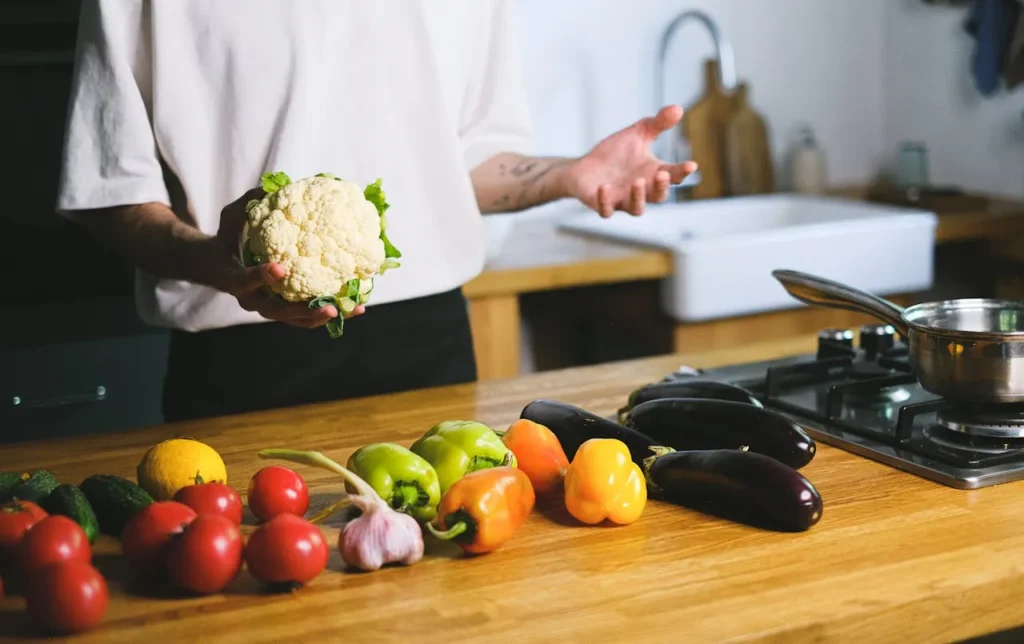
Food Innovation Challenge Awards $1 Million in Growth Grants and Grand Prizes from IFT and Seeding The Future
The Seeding The Future Foundation, in collaboration with the Institute of Food Technologists (IFT), has announced the recipients of the prestigious Seeding The Future Grand Prize and Growth Grants for the 2024 Seeding The Future Global Food System Challenge. Now in its fourth year, the Challenge serves as a platform for recognizing and accelerating groundbreaking innovations that aim to transform food systems globally—making them more nutritious, regenerative, sustainable, and equitable.
This year’s Challenge attracted unprecedented interest, receiving nearly 1,200 submissions from scientists, engineers, entrepreneurs, and multidisciplinary teams from across the globe. These applicants proposed forward-thinking solutions to some of the most critical and complex challenges facing food systems today, from climate-smart agriculture and indigenous food sovereignty to bioherbicides and post-harvest food safety.
To support innovation at various stages of development, the Challenge offers three levels of funding and recognition: Seed Grants, Growth Grants, and the highest tier, the Seeding The Future Grand Prize. Earlier this year, eight Seed Grant winners each received $25,000 to further develop their concepts. Now, the announcement of the three Growth Grant winners and two Grand Prize winners brings the total 2024 awards to $1 million in support of transformative food system solutions.
“Congratulations to our Grand Prize and Growth Grant winners of this year’s Seeding The Future Global Food System Challenge! It is highly inspiring to see the impactful and innovative solutions developed by these dedicated teams, each addressing critical aspects of food systems around the world,” said Dr. Bernhard van Lengerich, founder of the Seeding The Future Foundation. “Our annual Challenge continues to incentivize innovations that impact food systems globally with the goal of providing equitable access to safe, nutritious, trusted, affordable, and appealing food while improving the health of people and the environment.”
2024 Seeding The Future Grand Prize Winners
The Seeding The Future Grand Prize, which includes a $250,000 grant for each recipient, is awarded to teams whose innovations have demonstrated both scientific validity and potential for significant social, nutritional, and environmental impact at scale.
1. Oorja Development Solutions Limited – India
Project: Scaling Climate-Smart Farming Solutions: Bundling Pay-Per-Use Irrigation with Sustainable Advisory Services for Smallholders
Oorja provides smallholder farmers in India with a comprehensive, solar-powered, pay-per-use irrigation service. This bundled solution not only addresses energy access but integrates critical agricultural services including water pumping, soil testing, high-quality seed distribution, and on-site training in sustainable farming practices. The program is supported by a dedicated mobile app that enables real-time updates and tailored agronomic advice, empowering farmers to increase productivity while reducing resource dependency and climate-related risks.
2. Savory Institute – United States (Kenya MARA Project)
Project: Regenerating Traditional Foods, Lands & Livelihoods through Maasai Conservancies
The Savory Institute’s Kenya MARA program focuses on revitalizing traditional Maasai pastoralist systems through regenerative grazing on nature conservancies. The initiative supports the ecological restoration of degraded grasslands while simultaneously preserving the cultural heritage and livelihoods of Maasai herders. By aligning livestock management with conservation goals, the program promotes sustainable food production and reinforces the community’s animal-based diet, contributing to food sovereignty, ecosystem regeneration, and climate resilience.
2024 Growth Grant Winners
Each Growth Grant recipient is awarded $100,000 to further scale their innovation and broaden its real-world impact. These projects have already shown promising results and are poised for expansion or replication in new contexts.
1. CSIR-Savanna Agricultural Research Institute (CSIR-SARI) – Ghana
Project: Developing a Near-Infrared (NIR) Tool for Rapid Screening of Aflatoxin-Resistant Groundnuts
Aflatoxin contamination poses a major public health and agricultural threat in Sub-Saharan Africa, particularly in peanut production. The CSIR-SARI initiative addresses this challenge through a two-pronged approach: utilizing near-infrared technology to rapidly detect contamination in groundnuts and leveraging two naturally occurring antifungal compounds found in peanut seed coats to breed more resistant varieties. The innovation is designed to protect farmers and consumers from the harmful effects of aflatoxins while boosting regional food safety and market competitiveness.

2. Toothpick Company Limited – Kenya
Project: Breakthrough Bioherbicide Technology to Combat Striga Witchweed and Improve Food Security
Striga, a parasitic weed that devastates staple crops across Africa, threatens the livelihoods of millions of smallholder farmers. The Toothpick Project offers a game-changing solution in the form of a fungal bioherbicide that is applied as a coating to crop seeds. This environmentally safe, affordable, and highly effective treatment neutralizes the weed before it can harm the host plant. Already being used in Kenya, Uganda, Ethiopia, and Ghana, this technology significantly increases crop yields and strengthens regional food and economic security.
3. Yayasan Kopernik – Indonesia
Project: PANGAN Program: Revitalizing Indigenous Farming and Building a Sustainable Food System in West Timor
Kopernik’s PANGAN Program addresses the deep-rooted issue of food insecurity in Indonesia’s West Timor region by revitalizing indigenous agricultural practices. The initiative promotes dietary diversity, nutritional awareness, and the cultivation of traditional crops that are resilient to climate shocks. The program’s next phase involves piloting a Local Food Hub—a scalable model that connects small farmers and micro-agribusinesses with nearby markets to strengthen local supply chains, build resilient rural economies, and improve community nutrition.
A Global Network of Food System Innovators
Beyond financial support, all winners, finalists, and semi-finalists gain exclusive access to the Seeding The Future Global Food System Impact Innovators Database and Network—a peer-reviewed, interactive resource designed to amplify their innovations and expand their impact. The database allows for AI-assisted or filter-based searches by criteria such as food and agriculture challenges, UN Sustainable Development Goals (SDGs), planetary health indicators (e.g., water use, biodiversity, emissions), and application areas such as food safety, school nutrition, and biofortification.
This unique tool not only fosters global collaboration among innovators but also provides a valuable discovery platform for investors, intergovernmental agencies like the Food and Agriculture Organization (FAO), and major philanthropic institutions seeking to support high-impact, science-driven solutions for a healthier and more equitable planet.
Driving Change Through Innovation
As the global food system faces increasing stress from climate change, resource scarcity, and population growth, the importance of science-based innovation has never been greater. The Seeding The Future Global Food System Challenge continues to champion bold ideas and transformative solutions that empower communities, protect ecosystems, and nourish the world.
The 2024 winners exemplify the Challenge’s mission to drive systemic change from the ground up—through regenerative practices, indigenous knowledge, cutting-edge science, and inclusive economic models. With continued support from IFT and the Seeding The Future Foundation, these innovators are not only advancing food systems but helping build a more sustainable and equitable future for all.




